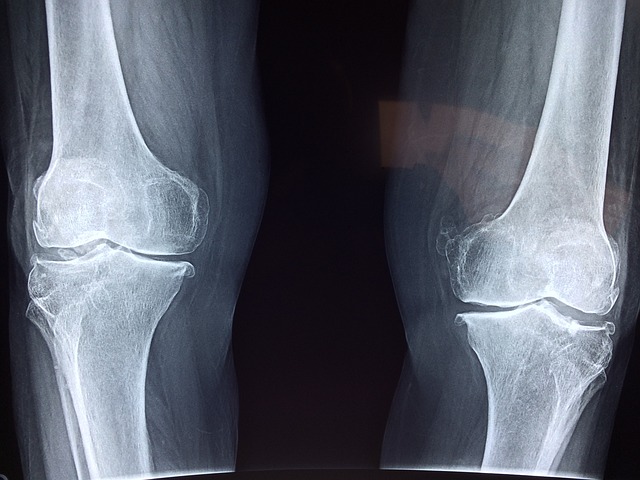Share This Article:

Court’s Focus on Injury, Rather than Surgery, Halts W. Va. Worker’s Claim
02 Jun, 2023 Frank Ferreri

Charleston, WV (WorkersCompensation.com) -- Just because two doctors present evidence in a worker's favor doesn't mean that a court will go with the popular vote.
In Lucas v. Blue Creek Mining, LLC, No. 21-0655 (W. Va. 04/05/23), the court determined that surgery wasn't the right option for an injured worker, and so impairment related to his surgery couldn't figure into his workers' compensation claim.
A fire boss slipped and twisted his right knee while working a mine. The claim was held compensable for right knee strain.
The boss underwent a series of independent medical evaluations, as follows:
March 12, 2019: The doctor diagnosed a torn medial and lateral meniscus of the right knee and preexisting mild right knee osteoarthritis. He found that the boss had reached maximum medical improvement and assessed 0 percent whole person impairment. The doctor noted that the boss's range of motion and alignment were normal. Based on the doctor's report, the claims administrator granted no permanent partial disability award.
Jan. 21, 2020: The doctor noted right knee tenderness, crepitation, and decreased range of motion. He diagnosed history of right knee strain with medial and lateral meniscal tears following a work injury. It was noted that the boss underwent a partial medial and lateral meniscectomy. The doctor found that the boss
reached MMI and required no further treatment. He assessed 4 percent whole person impairment.
July 14, 2020: At this IME, the doctor diagnosed right knee sprain with degenerative tear of the lateral meniscus and complex tear of the posterior horn of the medial meniscus. He found that the boss's treating physician stated that the lateral meniscal tear was degenerative and therefore the partial
lateral meniscectomy should not be rated. The doctor assessed 1 percent impairment for the right knee partial medial meniscectomy.
Workers' Comp. 101: In West Virginia, a workers' compensation claimant's disability will be presumed to have resulted from a compensable injury if: 1) before the injury, the claimant's preexisting disease or condition was asymptomatic; and 2) following the injury, the symptoms of the disabling disease or condition appeared and continuously manifested themselves afterwards. This presumption is not conclusive; it may be rebutted by the employer. See Moore v. ICG Tygart Valley, LLC, 879 S.E. 2d 779 (W. Va. 2022).
Based on these IMEs, the Office of Judges affirmed the claims administrator's decision granting no permanent partial disability award.
The Office of Judges found that none of the diagnoses were compensable conditions in the claim, and surgery was not appropriate treatment for the compensable condition of right knee strain. The Office of Judges therefore concluded that the boss was not entitled to an impairment rating for his right knee
surgery.
The boss appealed to court.
In West Virginia, the Supreme Court of Appeals will only reverse or modify a decision from the Office of Judges only if the decision is in clear violation of constitutional or statutory provision, is clearly the result of erroneous conclusions of law, or is based upon the board’s material misstatement or mischaracterization of particular components of the evidentiary record.
In this case, the court's majority did not find any such error.
"We agree with the reasoning and conclusions of the Office of Judges," the majority wrote. "The only compensable condition in the claim is right knee sprain, and therefore, any impairment [the boss had] must be based on that diagnosis."
Although two IME doctors assessed impairment above 0 percent, the court explained that both impairments were based on a non-compensable, unauthorized surgery. Therefore, the doctor who found the 0 percent impairment based on normal range of motion findings authored the report that was "the most reliable of record," in the court's view.
A dissenting justice posited that the majority rejected the boss's claim for "technical failures" and pointed out that "the medial meniscal tear was attributable to [the boss's] work injury and warranted at least 1 percent PPD."
california case management case management focus claims compensability compliance courts covid do you know the rule emotions exclusive remedy florida FMLA glossary check health care Healthcare hr homeroom insurance insurers iowa kentucky leadership medical NCCI new jersey new york ohio osha pennsylvania roadmap Safety state info technology texas violence WDYT west virginia what do you think women's history women's history month workcompcollege workers' comp 101 workers' recovery Workplace Safety Workplace Violence
Read Also
About The Author
About The Author
-
Frank Ferreri
Frank Ferreri, M.A., J.D. covers workers' compensation legal issues. He has published books, articles, and other material on multiple areas of employment, insurance, and disability law. Frank received his master's degree from the University of South Florida and juris doctor from the University of Florida Levin College of Law. Frank encourages everyone to consider helping out the Kind Souls Foundation and Kids' Chance of America.
More by This Author
- Mar 28, 2025
- Frank Ferreri
- Mar 24, 2025
- Frank Ferreri
Read More
- Mar 31, 2025
- Claire Muselman
- Mar 31, 2025
- Anne Llewellyn
- Mar 31, 2025
- Liz Carey
- Mar 31, 2025
- Claire Muselman
- Mar 31, 2025
- Chris Parker
- Mar 30, 2025
- Claire Muselman




